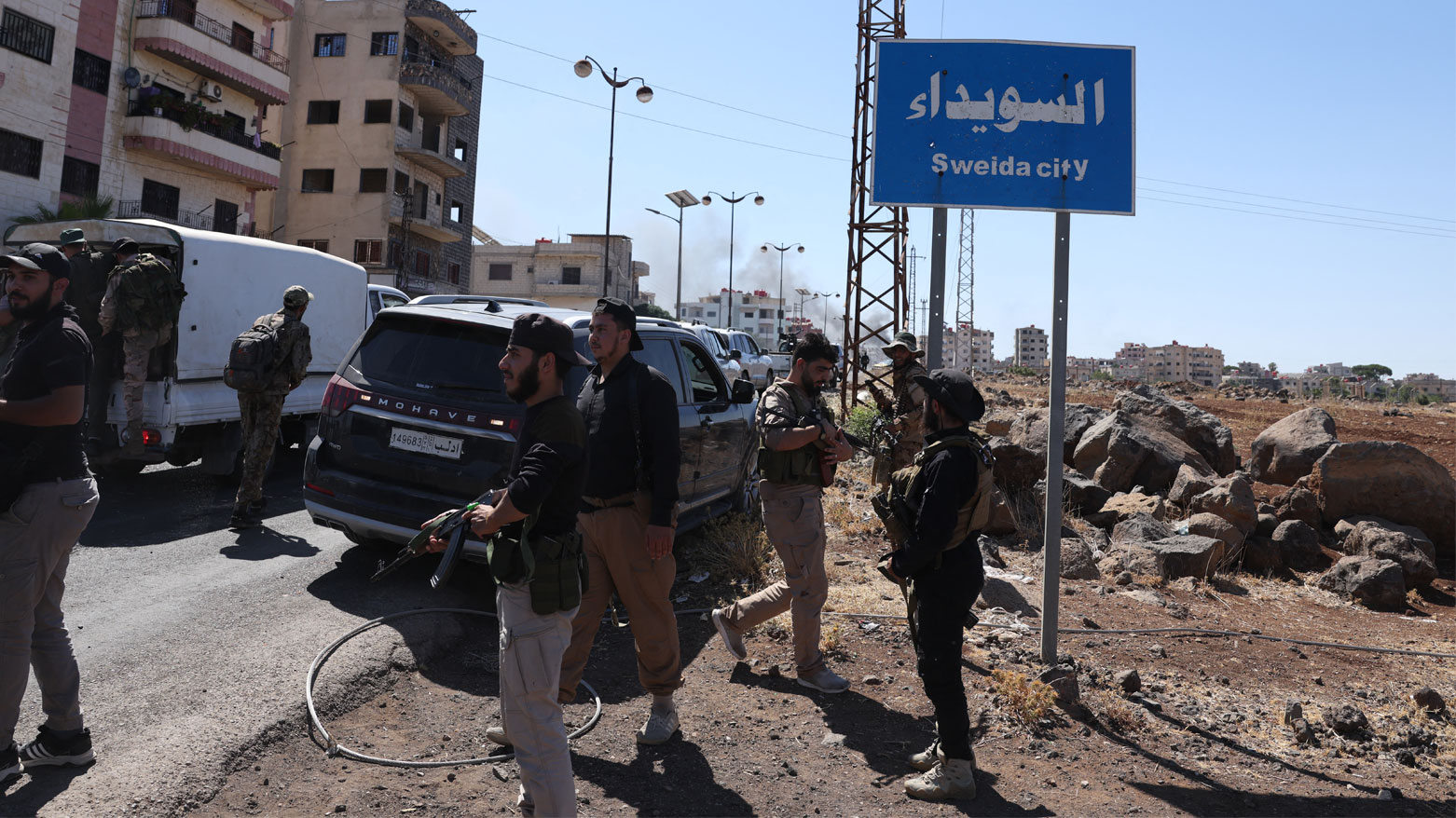Withdrawal of Heavy Weapons and Secret Negotiations: Developments in the Crisis in Southern Syria

A Syrian military official revealed on Tuesday that the Syrian forces have withdrawn their heavy weapons from the south of the country, in a development that coincides with reported negotiations regarding new security arrangements for the region.
The military official _who preferred to remain anonymous to the "AFP" agency_ stated: "The Syrian forces have withdrawn their heavy weapons from southern Syria," explaining that "the operation began two months ago, following the violence that occurred in Sweida, during which Israel targeted official sites in Damascus and vehicles of the government forces after their deployment in the predominantly Druze province."
On another note, a diplomatic source in Damascus reported that "the withdrawal of heavy weapons included the southern region of the country up to about 10 km south of Damascus." The source also revealed that "an Israeli-Syrian meeting will be held in Baku on September 19."
These developments come in the wake of statements from the Syrian minister, where Syrian Foreign Minister Faisal Mekdad clarified during a joint press conference with his Jordanian counterpart Ayman Safadi and the U.S. special envoy to Syria, Tom Brooks, that the signing of the agreement regarding Sweida came with support from Jordan and America.
For his part, the Jordanian Foreign Minister accused Israel of "seeking to divide Syria," but he clarified at the same time that "this roadmap also meets Israel's security needs."
In a related context, Syrian President Ahmad al-Shara revealed last week that "Damascus is conducting negotiations with Israel to reach an agreement under which Israeli forces would withdraw from the areas they occupied following the fall of the previous regime." Al-Shara stated in an interview with state television: "We are currently in the negotiation and discussion phase."
He added that Israel "considered that with the fall of the regime, Syria exited this agreement," referring to the disengagement agreement, despite the fact that "Damascus showed its commitment from the very first moment." He continued: "Negotiations are now underway on the security agreement so that Israel returns to what it was before December 8."
It is noteworthy that these developments occur against the backdrop of Israeli military operations in the region, where Israeli forces advanced into the demilitarized buffer zone in the Syrian Golan established under the 1974 disengagement agreement. Israel has also launched hundreds of airstrikes on Syrian military sites, claiming that its goal is to prevent the new authorities from acquiring the former army's arsenal, and has repeatedly announced ground operations and the arrest of suspects involved in "terrorist" activities in southern Syria.
In reference to the Israeli demand, Israeli Prime Minister Benjamin Netanyahu late last month (August) indicated that his government "is in contact to make southern Syria a demilitarized zone."
It is worth noting that Israel and Syria do not maintain diplomatic relations, and the two countries have been officially at war since 1948, although both sides have held meetings in the past under U.S. sponsorship.